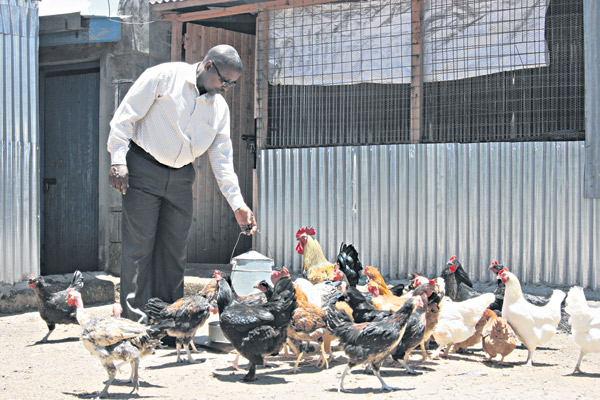Remember the quail farming craze that swept across the country two years ago?
Many farmers went into the trade expecting to harvest huge profits as prices of both the birds and their eggs were high.
An egg was going for over Sh100 and a bird for up Sh300. Quail rearing was the business to go into for any discerning farmer.
Soon, however, the market was saturated and the quail bubble burst. Patrick Mutua, a Nakuru-based farmer, was one of the poultry farmers in the business, to find out how he is faring on.
“Quails ushered me into poultry farming, but I will not keep them again,” he says. As you enter the gate of his home in Pipeline estate, which borders Nakuru National Park, one can hear his 1,000 indigenous chicken in different cages clucking.
“I used to keep the quails in the cages, which is why they are smaller than the normal chicken pens. They were hundreds of them but I have now turned a new leaf.”
Mutua went into quail rearing in 2012, injecting Sh100,000 into the business. He was among the first people to venture into the farming.
Having an incubator enabled him to sell both eggs and chicks. “In late 2012 and early 2013, there was so much demand that my eggs and quail chicks were always booked in advance,” recounts Mutua. But things took a nasty turn in October last year when demand declined.
“Egg prices started to plummet, from Sh100, to Sh80, Sh60, Sh30, Sh10 and finally Sh5.”
In the about one year he did the business, Mutua says he made profit of Sh200,000.
“Had I known that the business would be short-lived, I would have reared chicken instead of quails.”
MOVED TO CHICKEN
Having had enough, the farmer gave out most of his 600 birds to friends and ate others. He then moved to chicken. “I already had an incubator, so I bought about 30 eggs from a supplier in Nakuru and started hatching chicks in February.”
Every month he sells about 150 chicks from Sh100 to Sh250 depending on the age. He also sells 20 to 30 trays of eggs a month for Sh450 each.
“With chicken, I am assured of a business that can sustain me for long. I learned my lessons with quails.” Chicken farming, according to Mutua is not labour-intensive. One needs to feed them twice a day and clean the pens the same number of times.
“I give my chicken commercial feeds and supplement with sukuma wiki. I also follow strictly the vaccination schedule.” Mutua says he learned three lessons from the quail business.
“The first one is, in farming, never follow the crowd. Second, do market research and talk to experts to see if your venture is sustainable and lastly, do not give up when your agribusiness fails.”
Dr Githui Kaba, a livestock expert in Nakuru, cautions farmers against rushing into agribusiness for quick profits.
“Quail business was good. The only problem is that many people went into it and flooded the market, which was small.” He says that although indigenous chicken are disease-resistant, they must be vaccinated against Newcastle, fowl typhoid, gumboro and fowl pox, a disease that makes chicken go blind.








